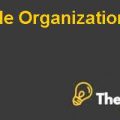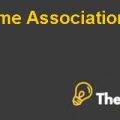Food for Thought: The “Junk Food” Act in Peru Case Study Solution
Laws on Marketing and Advertising should only Prohibit Deception
Here the critiques state that the government should generate mechanisms that control the contents provided in the advertisements rather than ban the advertisements completely. The critique could be considered authentic as controlling the content in advertisements rather than banning could make the government enable to protect rights of most of the stakeholders.
The Law will have Negative Economic Effects
Although, the law is supposed to benefit farmers with an increase consumption of perishable goods but the farmers do not represent major part of the country's economy. The enactment of law would impact the 100000 retail stores in the country along with the impact on the revenues of television and news channels due to the reduction of advertisements from the food companies. Overall, the act would put a negative impact on economy that is a potential point of consideration for taking any decision regarding the enactment of the law.
The Law imposes Restrictions that Other Countries not
The critique could not be considered as authentic as the reports from the WHO has clearly stated that there are some countries that have adopted the law. Moreover, each of the country has its own political and economic background along with the human nature, therefore, restricting the enactment of law on the basis of policies of other countries is not a valid ground.
The Real Intention is to control the Media
The critique is based on the declining number of private sector advertisements after the ban. However, again the critique is considered to be illogical as the companies are only banned to broadcast the manipulative advertisements which implies that the law is aimed at regulating contents in the advertisements.
Just Law:
A just law is a code that is man-made squaring with either moral law or the God’s law. (Forji, 2010) It is a code that is compelled for a majority by a minority in order to follow which wills to follow itself. This is considered to be legal. The just laws tend to be stable, publicized and clear which are applied evenly; protection of fundamental rights which includes the security of human rights, a person, a property and a contract.
Though, any particular law uplifting personality of a human is known to be just. The implication of responsibility on the basis of obeying just law is not only limited to legal but moral values. (Ali-Dinar, 1963)A democratic culture primarily implies a rigorous character that considers law as supreme as it is just which is grounded with the fair play rules and without good faith contrary. Therefore, just laws merit respect. (Forji, 2010)This law is significantly responsible for promotion of the common good. (West, 2011)
On the other hand, law is the thing that holds the center, the mortar for gap fill between communities and their people, creation of a social bond without which the lives quality tend to be undermined in great extent. Just law is the substance that is not visible sustaining social well-being, mutuality of trust and interest, and moral consensus. Interference with its principles underpinning the law, fritters them away, picking those out from the crannies of the social and political architecture as well as making restoration impossible. The only hope of the people and their relative communities is on the basis of an order that is governed through consent and law. (Kennedy, 2011)
Characterization of a Just Law:
There are a number of characteristics of just law which are known widely. Therefore, the characterization of just law involves:
-
Equality:
The conception of equality is considered as a key aspect in terms of law. Although, a just law may mainly responsible for provision of equality services to its people. But for instance, a wealthy individual might have the ability of affording legal representation in comparison to those who are not able to afford such legal representation wills surely not be benefited. Thus, the person that lacks such ability would not have the equal chance before the law.
-
Religious or ethical precepts:
The legal system of common law is the outcome of a number of historical impacts some of which includes moral as well as religious viewpoints at different situations. In the current society conditions, considering ethics and the way the society coincides with the law has been replaced due to the law need for society protection as a whole and considering economic interests.
c. Utilitarian
The theory of utilitarianism suggests the aims of the law in ensuring the greatest potential happiness for the greatest potential count of individuals.
-
Social cohesion and consensus stress:
In creation of legal consensus, democracy assists. The processes of democracy provide every citizen with potential opportunity within the state for development and creation law. The processes of democracy in general requires a consensus or majority for bringing a law into being. The processes of democracy design is to endure the well-being as well as survival of the community by stressed consensus.
e. Mitigation of general principles:
The mitigation of general principles in individual cases is primarily for fairness. The attempt of law in treating each individual with equal rights; every individual experiencing same situation is taxed with the same criteria, every individual who is known to break the same law that is mentioned in the same penalty. However, the presence of discretion in the courts is known for bringing reduction in the penalty in accordance with the circumstances.
-
Redress inequalities:
With the confirmation of unexploited laws by an individual, such people are set free.
It significantly considers limitation in the resources of material. As this can be invoked with no undue delay.
Therefore, a just law is needed to deal with legal issues or disputes that are attainable after the rise of the dispute or the issue. Due to the reason, fading of memories with the people and the presence of their evidences become less reliable with the passage of time.
Legislation or self-regulation:
Alarmed through the links among diseases prevalence and poor diet as well as striking growth in obesity; the public, health professionals and makers of policy have known to challenge the practices of food industry. However, there are a large number of forces contributing in the poor diet and obesity, the behavior of food industry like marketing and promotion of unhealthy children’s food, promotion of large portions and among-meal snacks and exploitation of schools for their commercial advantage has increased government regulation calls in order to pave the action path like requirement of label of calories on food products in restaurants. (Lisa L Sharma, 2009.......
This is just a sample partical work. Please place the order on the website to get your own originally done case solution.













